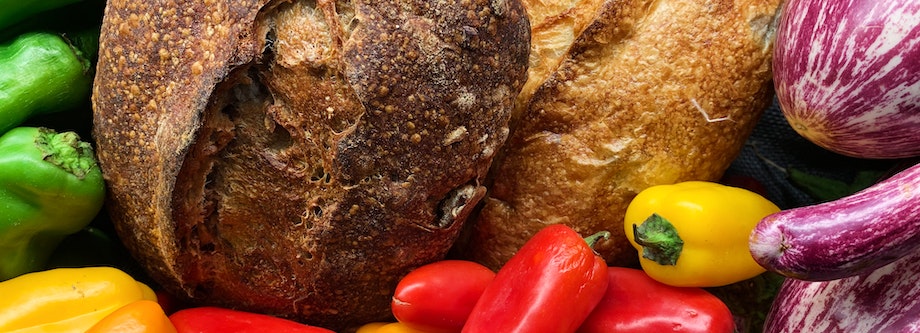The Link Between Gut Health And Weight Loss
EAT BETTER
Gut Health And Weight Loss

While doctors and scientists have known for some time about the microbes and bacteria that live in our digestive tracts, their full importance is only just being discovered.
Studies and research are increasingly showing just how important gut bacteria can be to our overall health. Not only that, but these ‘probiotics’ or ‘gut microbiota’ can also play a huge part in controlling our weight and weight loss in general.
The average digestive system plays host to trillions of these healthy bacteria,1 yet most of us know very little about them or the role they play within our bodies – especially when it comes to losing weight.
Let’s explore the link between gut health and weight loss…
What is gut bacteria?
All of the microorganisms that live in the gut are referred to as ‘gut bacteria’. And there are plenty of them. The bacteria that dwell within the gut are absolutely unique to each individual. These live bacteria can be found in fermented food and promote good health in a number of ways.
What exactly does gut bacteria do?
The incredible number of cells that comprise the average person’s gut bacteria combine to carry out quite a few different functions.
These are the main jobs of gut bacteria:
- They aid in the digestion of food2
- Microorganisms offer necessary nutrition, enzymes and hormones3
- They help with metabolism management4
- They provide defence against infections such as viruses5
- It aids in the development of our immune system6
- Certain types of inflammation can be prevented by the bacteria7
- They are involved in the production and regulation of hunger hormones8
The link between gut bacteria and weight loss
The science isn’t 100% settled on the topic, but then again, that is not uncommon in science. While research into the link between our digestive tract’s bacteria and how we store and lose weight is ongoing, some strong information has been uncovered.
Gut microorganisms have been shown to influence how we store fat, control our blood glucose levels and respond to hunger and satiety/fullness hormones such as ghrelin and leptin.9
The make-up of the bacteria in our gut can seemingly have a direct effect on our weight. This has been demonstrated in some interesting twin studies.
According to studies in both overweight and slimmer pairs of twins, leaner twins have a noticeably more dynamic and diversified microbial population, whereas obese twins have considerably less beneficial bacteria.10
Other tests show that people who struggle with obesity have considerably fewer varied microbiota than slimmer people. Obese people with less diversified gut bacteria put on weight far more easily than obese people with more diverse gut bacteria.11
So the results of these studies seem pretty clear: anyone embarking on a weight loss journey will benefit from ensuring that their gut bacteria are as varied and healthy as possible.
The best foods for maintaining healthy gut bacteria
There are many foodstuffs that encourage lots of different types of healthy gut bacteria to exist in your gut. The key is to try and incorporate as many as possible into your diet. It’s all about variety.
Diet diversity is key to weight loss too. Studies show that dieters who consume a wider variety of healthy meals are more likely to lose weight over time and are less likely to develop metabolic syndrome.12
Here are some of the best foods to include in a gut health weight loss diet:
- Fruit
- Vegetables
- Whole grains
- Seeds
- Nuts
- Dark chocolate
- Green tea
- Yoghurt
- Kefir
- Kombucha
- Red wine
Non-diet-based ways to support your gut bacteria
The best way to support our healthy gut bacteria is by monitoring what we eat. There are other ways to boost probiotics, though.
Several things we can all do to maintain a healthy gut and encourage a healthy mix of diverse and healthy digestive bacteria are as follows:
- Keep fit – Regular exercise is shown to help with gut bacteria. Athletes and those people that are more physically active tend to have a far greater variety of healthy bacteria in their systems than sedentary people who do not fit in any exercise.13
- Manage your stress levels – Gut microbe diversity and amount are tied in with stress and anxiety levels. People with high stress levels tend to produce less healthy bacteria than those people who manage their stress.14 Of course, this is easier said than done, but de-stressing techniques could pay off here (and in many other ways too).
- Keep hydrated – Making sure you drink plenty of water is key to maintaining gut health.
- Limit stimulants and drugs/medicine intake where possible – Alcohol, caffeine and nicotine are all digestive stimulants and can cause some interruption to the digestion process.15 Other drugs can do the same, as can some over-the-counter medicines such as painkillers. Laxatives are also best avoided.16